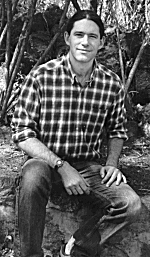Dmsayt ‘nmoomdm, a Ts’msyeen expression that can be translated into English as “We will all help each other,” is a newly funded Social Sciences and Humanities Research Council of Canada research project. This project will examine family poverty and women’s homelessness in the Ts’msyeen Territories of north coast British Columbia with the specific goal of locating solutions based upon Ts’msyeen customary practice. Drawing inspiration from the Ts’msyeen expression Dmsayt ‘nmoomdm / We will all help each other, our central focus in this study is to explore the ways in which Ts’msyeen and other First Nations families with dependent children develop strategies and support networks to cope with conditions of extreme material poverty (i.e., conditions of chronic un/underemployment, insufficient social assistance, and cramped or inadequate housing). The research will examine the different poverty/homelessness outcomes for single/lone parent headed families versus two parent families. As described in the Aboriginal Profile produced by Stats Canada in 2001 a disproportionate number of female-headed Aboriginal families currently live in conditions of extreme poverty. A key aspect of this study will be an examination of the extent to which these conditions of extreme poverty are mitigated by access to subsistence gathering, hunting, or fishing conducted on Ts’msyeen Territory. These research objectives are motivated by a concern to identify and develop policy frameworks that are consistent with local First Nations protocols and that are designed to build upon Ts’msyeen social and cultural values.Conducted over three years, methods will include: the collection of life and family histories of selected respondents representing single/lone parent headed families and two parent families, interviews of Ts’msyeen community leaders, interviews with subsistence harvesters from Gitxaaała, and compilation of documentary sources of historical subsistence activities. Interviews documenting local social networks for subsistence food sharing will be completed as well. These tasks will be accomplished through a community-university team research approach in which respondents will be asked to participate in qualitative interviews. Interviews will be complemented with data from participant observation in Prince Rupert, Port Edward and Gitxaała communities.
This research is motivated by a commitment to community-based research that is designed in collaboration with Gitxaała Nation. The collaboration and oversight by Gitxaała will be maintained through an oversight committee consisting of elders and community appointees from Gitxaała.
Developing out of this study will be (1) deliverables in the form of three broadcast quality videos, digital resources, and print materials that will enable the widest possible dissemination of results; (2) concrete and practical policy recommendations that will be presented to the Gitxaała Nation, municipal, provincial, and federal governments to facilitate the implementation of pragmatic and practical poverty mitigation strategies, and; (3) community-based workshops highlighting research results and appropriate application of these results.
The principal investigator is Charles Menzies. Co-invesitgators are Caroline Butler (UNBC), Merle Bolton (Gitxaała), Felice Wyndham(UBC) and Andrew Martindale (UBC).

